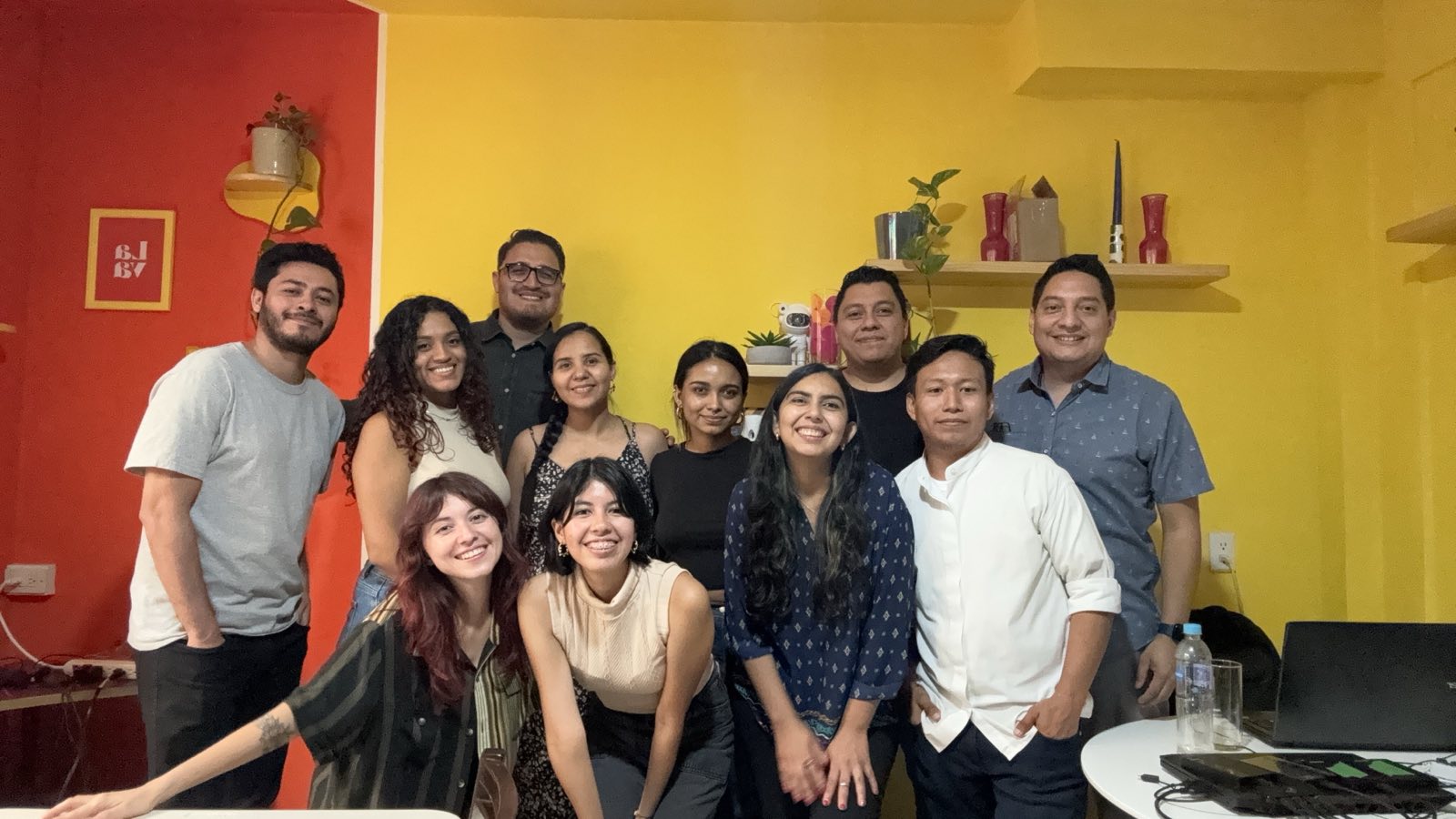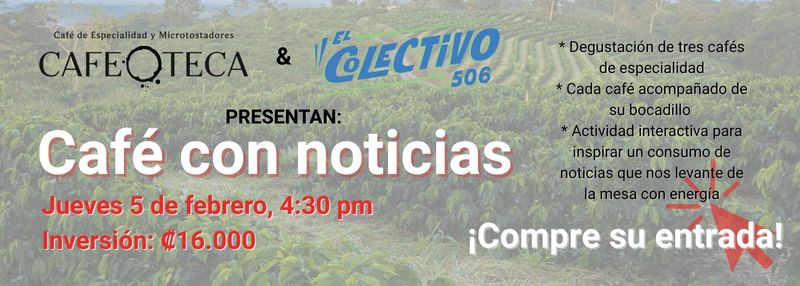With all due respect to journalism that takes risks and denounces injustices, we decided to create Lava in our country, El Salvador, to promote the idea that showcasing the dark side of reality is not the only way to inform. Instead, we pull hope out of the drawer to create a space for solutions.
We set ourselves the challenge of reconnecting with an audience that sometimes mistrusts journalism, and of challenging the status quo. We planned to do this not only through the checks on power that are inherent to the press—but also through our commitment to solutions journalism, an approach that swims against the current in El Salvador. After all, our country is a place where independent journalism is under threat. It’s natural that journalists here are skeptical of narratives that focus on positive exceptions to the rule.
Proyecto Lava, a digital media organization dedicated to solutions journalism—rigorous investigation of the problems our societies face, and responses to those problems—emerged in 2022. It was inspired by a previous experience in the defunct Teleprensa, a television news program that closed due to state and administrative pressures. In 2021, while working as a reporter there and looking for stories of food problems on the coast during the pandemic, I found something unexpected: a fishing community that, with organization, empathy and barter, had built a true revolution against hunger.
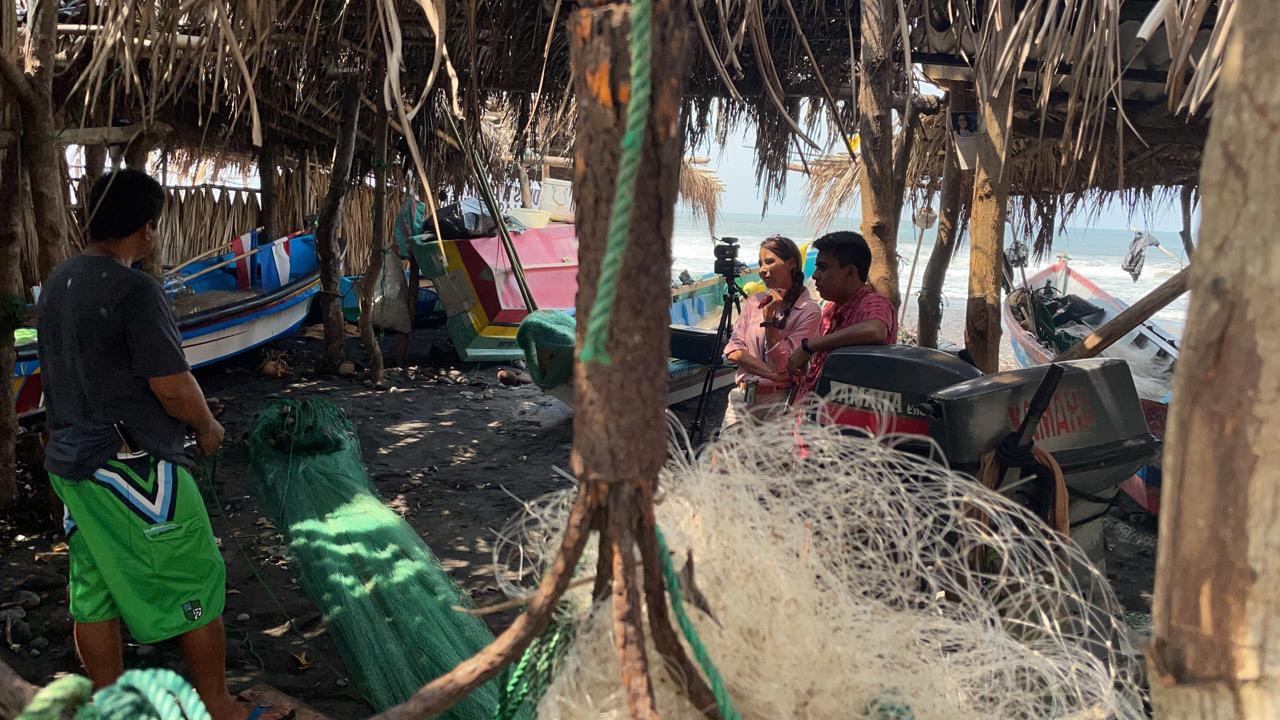
We published the story thanks to a grant from the Gabriel García Márquez Foundation. The public’s reaction was surprising. There was no skepticism or disparagement. Instead, visits skyrocketed. People offered their opinions and, most importantly, asked for more stories like this one. Without realizing it, we had eliminated the distance between our media organization and its audience, demonstrating a new way of seeing reality through solutions journalism.
Since 2019, with the arrival of Nayib Bukele to the presidency, the concentration of power and the delegitimization of the independent press have advanced significantly. A recent survey by the Citizen Studies Center (CEC) at Francisco Gavidia University reveals that, in El Salvador, trust in the media seems to have a direct relationship with the government: the closer media stay to official government messaging, the greater the public trust. Independent media, on the other hand, are viewed with more distrust.
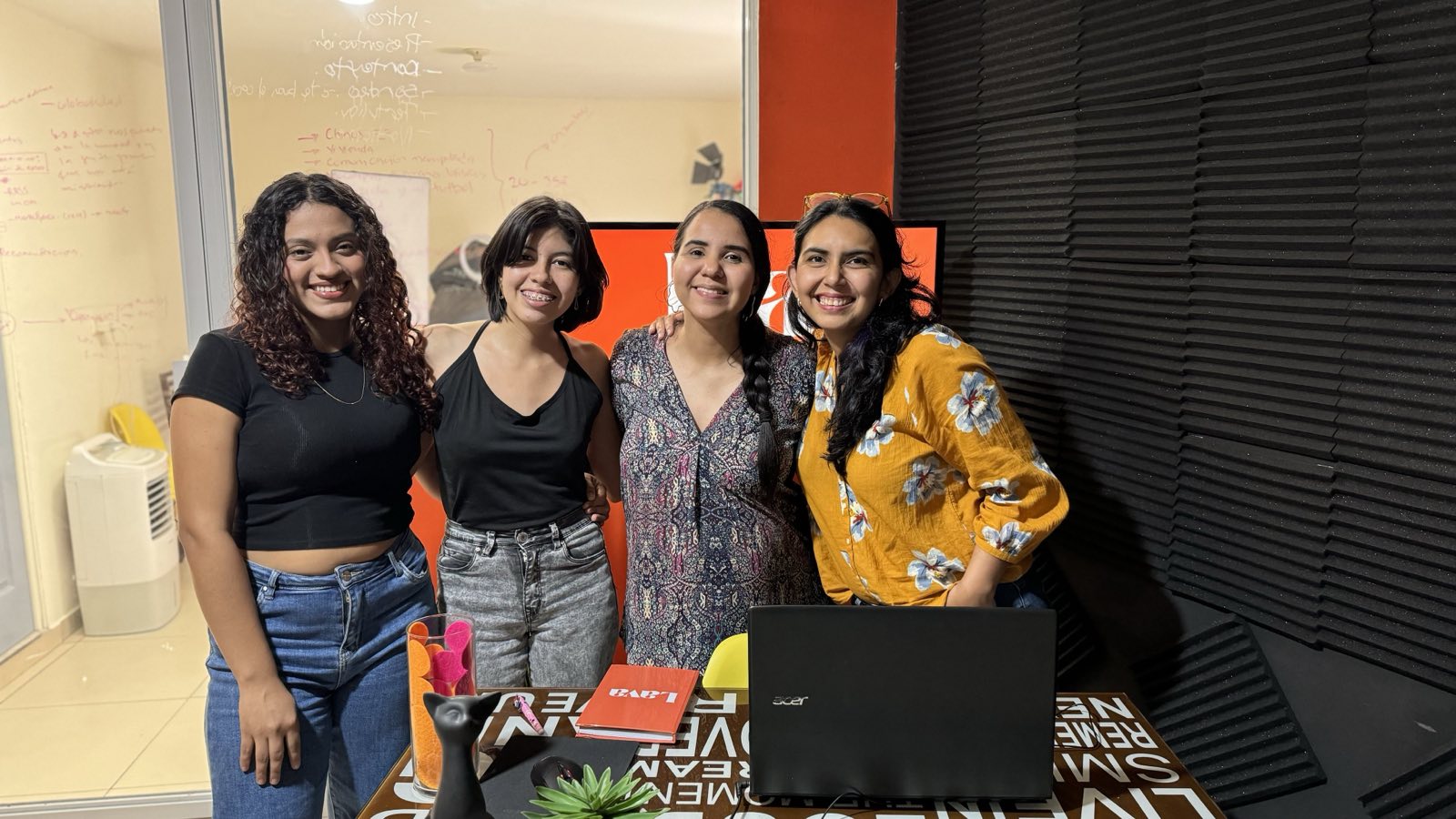
State media such as Canal 10 and Diario El Salvador lead in trust, while critics such as El Faro and Gato Encerrado are among the least trusted. This is alarming. Propaganda is valued, while independent journalism is punished. This data calls us to question ourselves, and to explore new ways to do our duty—our duty to tell the story of our reality, and to bring truthful information to audiences.
With the success of that story about coastal communities, “The Revolution Against Hunger,” we understood that solutions journalism could be a tool to help us resist propaganda and misinformation, building a bridge of trust and offering information free of polarization. If the resilience and creativity of communities had been key to facing their challenges, why not apply those same principles in journalism?
After the closure of Teleprensa, I admit that it was no easy task to find partners to create a media organization with a constructive approach. Some colleagues saw this view as a deviation from journalism, almost as if looking towards the positive was an act of disloyalty.
At Lava, we believe the opposite: true betrayal occurs when we report with blinders on, whether that limited view is apocalyptic or idealistic. When we do this, we abandon those to whom we owe the most: the audiences who seek reliable information to face their daily lives.
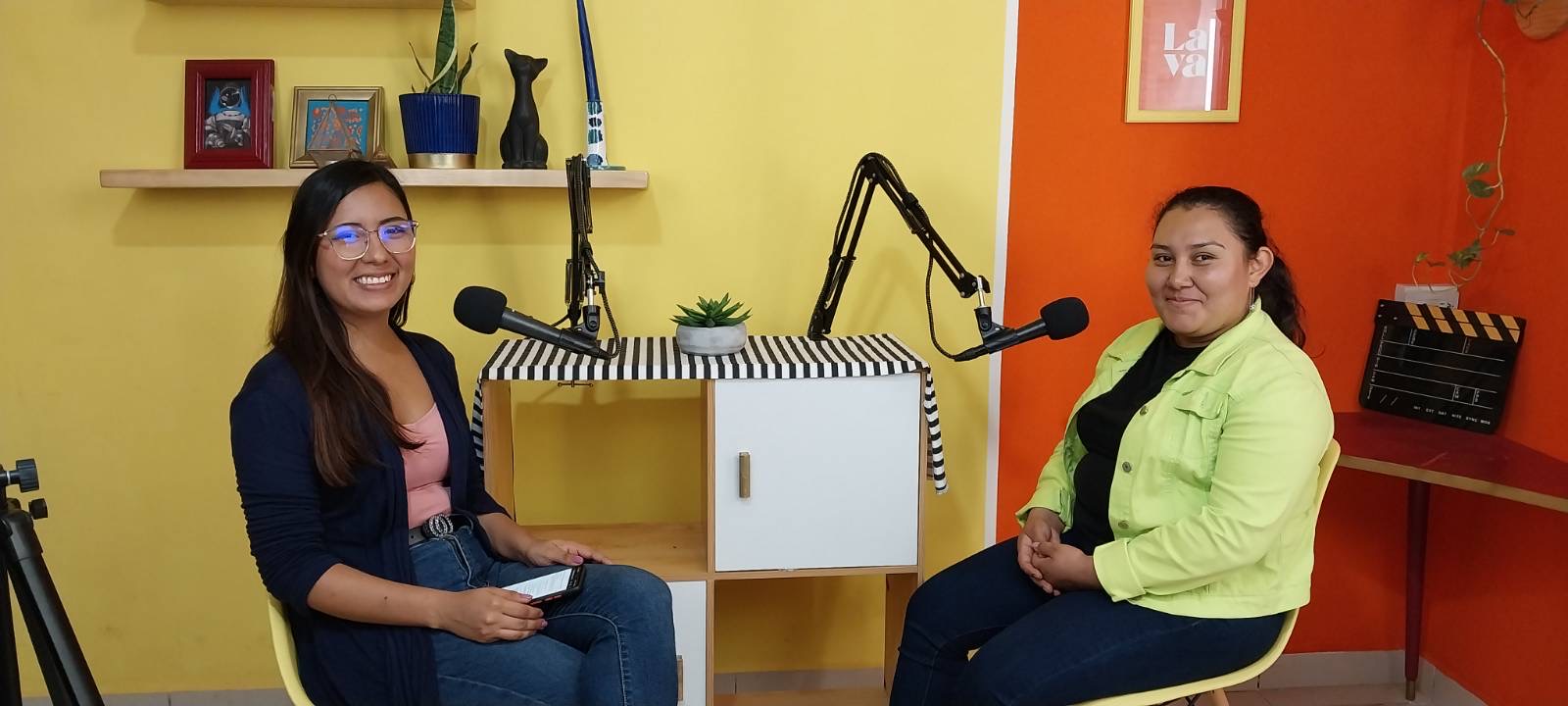
Journalism is a privilege. We have the opportunity to do what many would love to do: to ask questions, to experience historical events first-hand. We are the eyes and ears of those who are not there. We are your connection to a reality that, many times, you can only imagine through our stories. How are we honoring that responsibility if we offer you an incomplete vision? How are we doing our duty if we feed you a steady diet of discouragement, without any balance?
With these questions in mind, we sought to start Lava within existing independent media, hoping they would be receptive. However, our idea was rejected. We were told these were “Sunday topics.” Then we tried traditional media, but they told us that they saw solutions journalism as too risky. Because it requires rigor, depth, and evidence, some feared it would be interpreted as confrontational.
Fortunately, we achieved the support of a pro-democracy organization called CECADE, which allowed us to explore stories that showed the power of resilience and community organizing. We decided to call ourselves Lava because, like our volcanic region and the people whose stories we document, we share an energy that transforms—a latent, invisible power that remains dormant until it is put into action. Just like the communities we serve, we challenge the systems around us. While it may sound paradoxical, we demonstrate that talking about hope, in this context, is an act of rebellion.
We have been documenting positive exceptions to the rule for 1.5 years now, showing how communities find alternatives to face critical challenges in areas such as access to human rights, water, access to food, and housing, as well as complex issues such as transparency and anti-corruption. We like to think that we do narrative justice by giving visibility to what other media tend to overlook: the actions of people and communities. The people are also protagonists in our national story. When our media criticizes “bukelization”—Bukele’s increasing dominance of our national discourse—but also focuses its reporting on him, leaving communities out of the spotlight, they unintentionally accelerate and amplify his control. People don’t deserve headlines only when they are victims. The media should not focus only on those who hold public office.
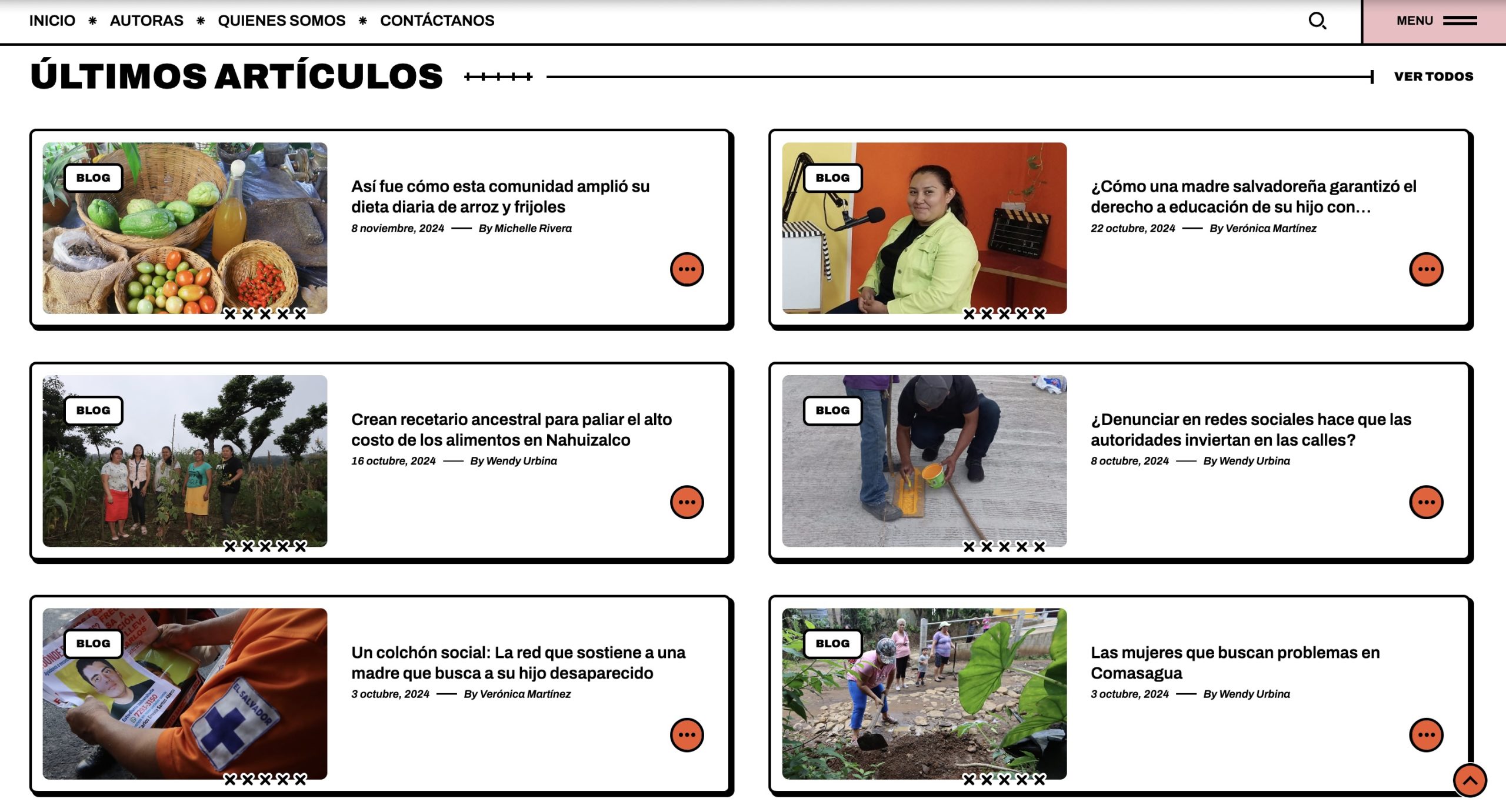
The 2023 Latinobarómetro Report indicates that El Salvador is ceasing to be a democracy, shifting to autocratic populism. If the media are called the “fourth estate,” why not use that influence to challenge this trend? Why not help society remember that the country depends, not on a single leader, but on the daily action of its inhabitants? The communities we serve are exercising, every day, what we like to call “hyperlocal democracy”—democracy that emerges not from academia or other elite spaces, but on the grassroots level. By demonstrating to the State that they can solve their own problems and meet their own needs, they create the ultimate challenge to power.
We maintain our hope that this is a good path towards transformative and accessible journalism. It fills us with hope to see the results. Through this coverage with a different approach, we have managed to challenge the norm in digital spaces, and to open dialogues on social networks where the conversation flows without attacks.
This allows communities to feel comfortable exposing their problems and for our journalists to work in a safe environment. It also motivates us to dream. It helps us believe that, if an idea has value, it deserves to be defended and put into practice.
We believe that, with these months of work, we have managed to change the perception of solutions journalism that we felt around us in El Salvador when we first got started. Each change encourages us to continue challenging barriers, regardless of the struggles of an information market that still concentrates on the negative.
We believe that maintaining this vision in a country with a complex political situation and a rigid media tradition is, above all, an act of resistance. We remain steadfast in our conviction that, despite the challenges, it is crucial to take that step beyond the darkness to tell the story of all the nuance that surrounds us—no matter the cost.
This column is part of our November 2024 edition “Central America Responds,” which includes six reporting projects by journalists in various countries of the region, carried out thanks to grants from an initiative of El Colectivo 506 called the Latin American Solutions Journalism Fund. We’re honored to include Proyecto Lava journalists among the recipients of our reporting grants. Follow us for more of their work throughout the month; get to know Proyecto Lava here; and read more about the edition below.


